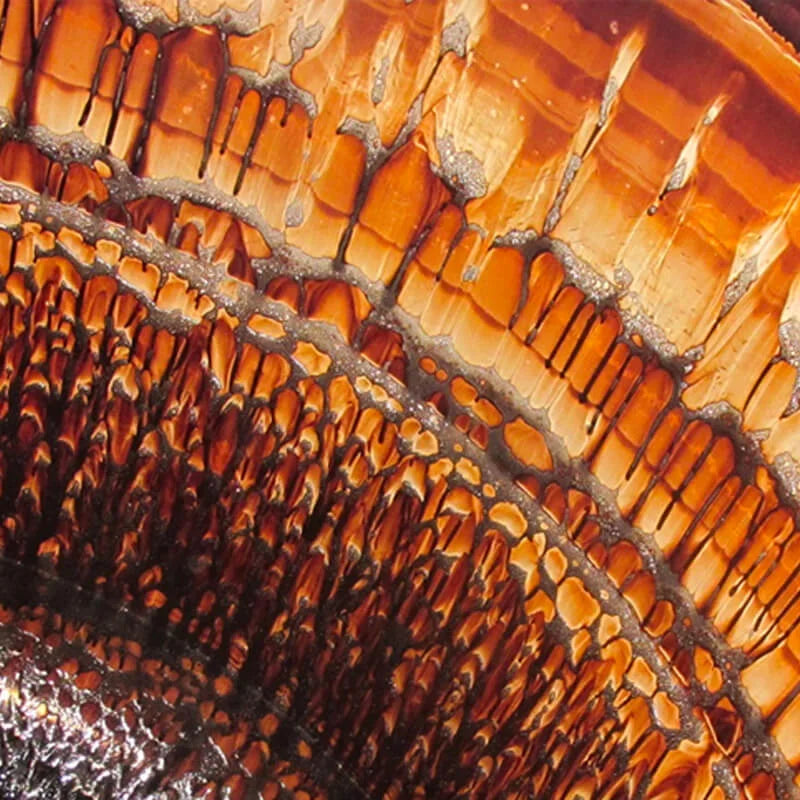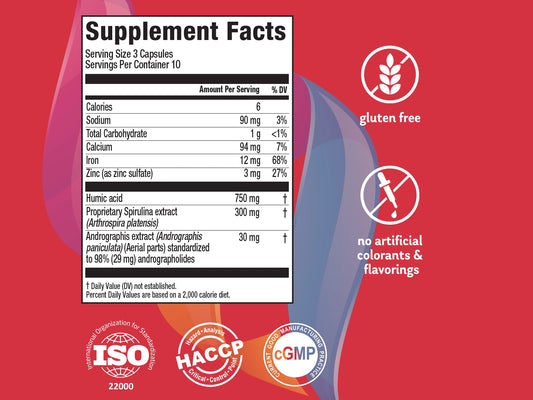Humic acid is a polymer produced in the soil through the physical, chemical, and microbiological transformation of decaying plants - a process called “humification”.
A collective term for different compounds obtained in the process of humification, humic acid is characterized as a loose assembly of aromatic polymers, with varying molecular weights, structural properties and reactivity. Herbalists in Rome and China have used humic acid for thousands of years; the scientific research of its uses began in Europe in the 18th century. In modern times, several trials have demonstrated the beneficial effects of humic acids on the immune system1,2*; some studies suggest that it may support a healthy immune system during seasonal challenges3.* Studies also show the supplementation of humic acids can support colon microbiota, a key factor in immune homeostasis4.* Humic acids also possess chelating properties - the ability to bind heavy metals and toxins, and support detoxifying systems in the body5.*
- Rosa Sanmiguel P, Iang Rondón B. Rev MVZ Cordoba. 2016;21(1):5198-5210. doi:10.21897/rmvz.30
- Abdel-wahab AM, El-refaee AME, Ammar AA. Egypt J Aquac. 2012;2(1):83-91.
- Jankowski A, Nienartowicz B, Polanska B, Lewandowicz-Uszynska A. Arch Immunol Ther Exp (Warsz). 1993;41(1):95-97.
- Swidsinski A, Dörffel Y, Loening-Baucke V, et al. World J Gastroenterol. 2017;23(5):885-890. doi:10.3748/wjg.v23.i5.885
- de Melo BAG, Motta FL, Santana MHA. Mater Sci Eng C. 2016;62:967-974. doi:https://doi.org/10.1016/j.msec.2015.12.001




